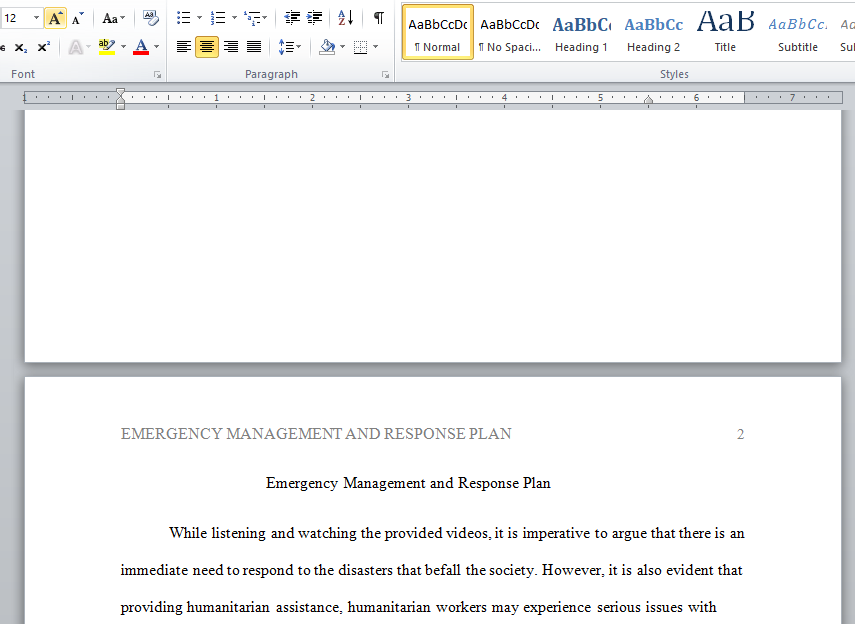In Emergency Management, what should one do when it seems too emotional ?
When responding to catastrophic events such as those seen in the videos above, it may appear too much or too emotional for first responders. The best strategy to address this issue is to develop a stress management plan for before, during, and after an event.
Leaders should make provisions to integrate peer-based support systems to manage stress into the organizational preparedness plan (FEMA, p. 31). An example of such a system includes the Critical Incident Stress Management (CISM) program. As stated, “CISM programs promote pre-event stress and crisis management education, planning, policy development, training, and preparation for the management of traumatic stress. The programs have toolkits that include interventions during an event as well as interventions for use in the aftermath of an event” (FEMA, p. 31). The control of both pre and post-traumatic stress is of utmost importance and is critical for a proficient response.
Pre-event planning efforts such as clearly defining the roles/responsibilities and lines of authority; conducting ongoing safety training; development of a deployment plan; and practicing procedures/framework for efficient performance can minimize stress levels during response endeavors (U.S. Department of Health and Human Services, pp. 7-9). Additionally, having a comprehensive communication plan can reduce stress levels due to continued internal and external (for example, first responders and their families) communications before, during, and after disasters.
During response operations, stress levels can be reduced by monitoring hours worked, encouraging breaks away from the scene, rotating workers from high stress to lower stress activities/environment, implementing a buddy system, and conducting of regular briefings to check in with responders (U.S. Department of Health and Human Services, p. 10).
After response efforts have concluded, responders should be allowed to take time off to recharge, encouraged to attend counseling sessions, and discuss their perspective on the disaster in the form of an exit interview to decrease the impact of traumatic stress (U.S. Department of Health and Human Services, p. 12).
Bibliography
FEMA. (n.d.). Emergency Planning for First Responders and Their Families.
U.S. Department of Health and Human Services. (n.d.). A Guide to Managing Stress in Crisis Response Professions. Retrieved from samhsa.gov: https://store.
It may seems sometimes that disasters and emergencies only befall our country – that is a media portrayal, but we know better. The entire planet is disaster prone, some places more than others. Our links here to Japan – home to major earthquakes and typhoons (and the occasional fictional mega-monster visits) is our example here. We also consider intentional acts, some of which can rise to the level of terrorism…
Video Links:
Tsunami in Japan filmed by a driver from his car
Tsunami Japan from a car
Rare Video: Japan Tsunami | National Geographic
Tsunami Japan from National Geographic
Boston Marathon Explosions Video: Two Bombs Near Finish Line
Boston Marathon Bombing
Oklahoma City Bombing Live Coverage 1995
Oklahoma City Bombing
Charlie Hebdo: Paris terror attack kills 12
Paris Terrorist Attack
Pretty frightening stuff! In Emergency Management, no matter what happens, we still have to respond. When it seems like too much or too emotional – what should we do?
Answer preview :

Word limit : 285
